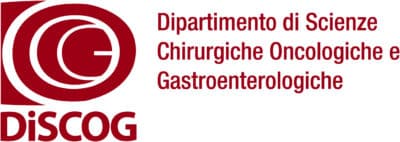
The First-level Short Specialisation Degree in Clinical Experimentation in Oncology: Clinical, Management, and Operational Aspects prepares clinical trial coordinators and research nurses with the theoretical and practical tools necessary for proper modern training in conducting a clinical trial in oncology, the fundamentals of clinical oncology, research methodology, the ethical principles underpinning it all, regulations that govern conduct, and the operational and management aspects for properly conducting oncology trials.
The First-level Short Specialisation Degree’s course is meant to respond to the growing complexity in this area, which makes it increasingly necessary to have adequately prepared personnel for the proper management of these processes.
The First-level Short Specialisation Degree in Clinical Experimentation in Oncology: Clinical, Management, and Operational Aspects places a special focus on the fundamentals of clinical oncology, research methodology and the ethical principles underpinning these methods, national legislation governing conduct, and operational and management aspects.
In-depth modules include:
- General Clinical Oncology
- Special Clinical Oncology
- Research Methodology
- Research Ethics
- Regulations
- Data Management
- Quality Conduct
- Operational Aspects
The First-level Short Specialisation Degree in Clinical Experimentation in Oncology: Clinical, Management, and Operational Aspects trains professional figures like clinical trial coordinators, data managers, and research nurses for private hospitals, university hospitals, university polyclinics institutes, research institutes, local health boards, private clinics, pharmaceutical companies, and Contract Research Organisations.
Upon completion of the First-level Short Specialisation Degree’s course, the student will be able to take part in the drafting of research protocols in the field of oncology, work in accordance with the principles of Good Clinical Practice (GCP) and the current regulations in place, be able to coordinate a clinical trial in their areas of expertise in compliance with protocols, have the knowledge to protect the safety and rights of participants, properly handle data and quality control, and coordinate the operational aspects of profit and non-profit experimentation.
The First-level Short Specialisation Degree in Clinical Experimentation in Oncology: Clinical, Management, and Operational Aspects offers training in:
Module 1: GENERAL CLINICAL ONCOLOGY
This course provides Master’s participants with general knowledge of: the epidemiology and aetiology of tumours; the biological factors behind carcinogenesis and neoplastic evolution; the main molecular and cellular alterations underlying the process of tumour transformation. The fundamentals of medical treatment for tumours are addressed, analysing the different classes of anti-cancer drugs. Finally, participants learn about the role of laboratory diagnostics in the diagnostic-therapeutic pathway of the main neoplasm types.
Module 2: SPECIAL CLINICAL ONCOLOGY
The course goes into detail on the most frequent neoplastic diseases (breast, lung, gastrointestinal, genitourinary, gynaecological, cutaneous, cerebral and cervical-facial neoplasms), with a focus on the epidemiology, social-health impact, and diagnostic-therapeutic pathway of each one.
Module 3: RESEARCH METHODOLOGY
The course defines the operational key points of good clinical practice, with a special focus on: international standards of ethics and quality required for the design, conduct, and registration of clinical trials.
Module 4: RESEARCH ETHICS
The course goes into detail on the ethical aspects of human experimentation with a focus on the importance of obtaining free and informed consent for experimental treatment.
Module 5: REGULATIONS
The course covers national and European legislation regulating the conduct of clinical trials of medicinal products with a specific focus on the most recent regulations (specifically the implementation of Directive 2005/28/EC on detailed principles and guidelines for good clinical practice of investigational medicinal products for human use).
Module 6: DATA MANAGEMENT
This module deals with clinical trial data management; data source verification; the design and filling out of data collection forms; monitoring and data cleaning; e-query and data clarification; electronic data and flow management; clinical trial observatory.
Module 7: QUALITY CONDUCT
This module covers management of the informed consent process; handling of clinical trial participant data; ethics committee submission management and authorisation/deliberation process for for-profit and not-for-profit studies; pharmacovigilance.
Module 8: OPERATIONAL ASPECTS
This course covers the practical and operational aspects of conducting a clinical trial and the functions associated with the research nurse and study coordinator. Topics such as experimental drug management, quality of life and patient reported outcomes, toxicity detection and management, and classification of adverse events will be covered.
The First-level Short Specialisation Degree’s course, in addition to relying on university teaching staff with an excellent scientific profile, has also begun a fruitful collaboration with the University of Verona, Azienda Ospedaliera Universitaria Integrata of Verona, IOV Istituto Oncologico Veneto e IRCSS, a highly important centre in the field of oncology both at both the regional and national level.
IOV provides the First-level Short Specialisation Degree’s course with its expert personnel – professionals who have made an important contribution to teaching in the fields of oncological clinical practice, data management, operational and management aspects, and the quality conduct of clinical research.
What’s more, over the years, the First-level Short Specialisation Degree’s course has benefited from the participation of lecturers from the Universities of Turin, Modena, and Reggio Emilia and experts from highly qualified bodies and institutes including Gimema and the Mario Negri Institute, in Italy, as well as the EORTC (European Organisation for Research and Treatment of Cancer) in Belgium.
The general ranking of merit for the academic year 2024/25 will be published on the Italian page of this Master according to the timing provided in the Call.
Information
FAQ
The First-level Short Specialisation Degree’s lasts a year and offers 60 university course credits.
It is subdivided into 8 courses with a total of 300 hours of lectures face-to-face and via distance learning. There are a total of 1,500 academic hours – including individual study, the preparation of a final dissertation, and an internship.
Lessons are typically held on Thursdays and Fridays, except for any make-up lessons that may need to be scheduled.
The 200-hour internship is obligatory and doesn’t allow for a certain percentage of absences. The internship will be structured as such: 180 hours for the chosen section (research nurse/data manager), while the remaining 20 hours will be carried out in the other area in order to understand how things work in the oncological institute or Clinical Research Unit (subject to availability). Alternatively, the internship can be carried out at the Clinical Research Centre in Verona (only upon acceptance).

